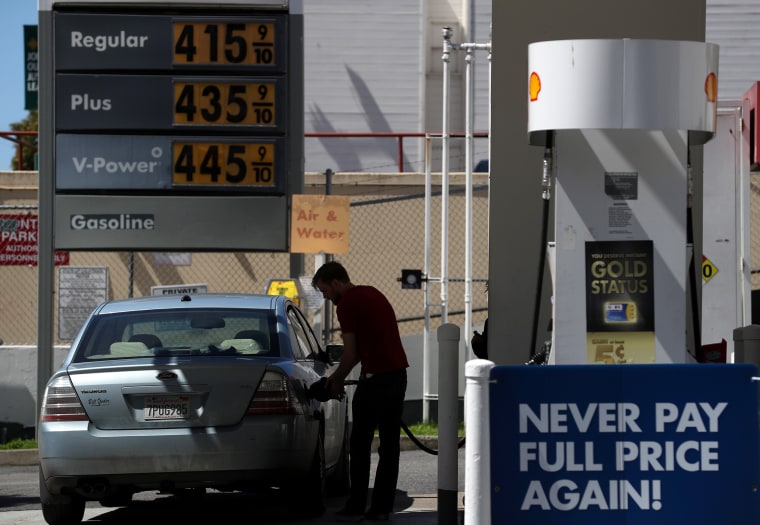America’s summer vacations could be collateral damage in President Donald Trump’s hard-line policy on Iran.
After Secretary of State Mike Pompeo announced this week that countries importing Iranian oil under a current waiver program would be subject to U.S. sanctions as of May 2, petroleum analysts said gas prices would most likely continue to climb.
“This could affect how much Americans pay at the pump by the end of this week," said Patrick DeHaan, a senior petroleum analyst at GasBuddy. "At the onset, it could be just a few cents a gallon, but we’re just entering this tunnel of potential here.”
The average price of gasoline has already been on the upswing, and at a national average of $2.84 is 23 cents higher than it was a month ago. The average has already hit more than $4 a gallon in California, according to the AAA.
“We are seeing very expensive gas prices for this time of year across the country,” Jeanette Casselano, AAA spokeswoman, said in an April 15 release. “Motorists are seeing prices increase as gasoline stocks decreased substantially by 7.7 million [barrels] amid summer-like demand readings.”
Pompeo said that sanctions had weakened Iran’s economy in making the case for the discontinuation of the waivers, which had been extended to China, India, Italy, Greece, Japan, South Korea, Taiwan and Turkey. Experts say this could take roughly 1 million barrels of oil a day off the global market, a loss magnified by political conflicts in Venezuela and Libya that are crimping those countries’ oil production.
“With the canceling of waivers against buying from Iran, the Trump administration will exert pressure not only on Iran but also OPEC,” said John Hall, chairman of U.K.-based Alfa Energy Group. “In the short term, there will be some fluctuations in the oil price and for that reason the U.S. and other countries could be paying more for gasoline in the summer months to come,” he said.
The Trump administration said it had plans to replace the Iranian oil. Pompeo said de facto OPEC leader Saudi Arabia, along with the United Arab Emirates, had committed to making sure the global oil market has enough supply. “Saudi Arabia and others in OPEC will more than make up the Oil Flow difference,” Trump tweeted on Monday morning.
But energy market experts expressed skepticism, pointing out that “enough” could be subjective in nature. Markets weighed in with a similar sentiment, sending the key benchmark price of Brent crude up by around 3 percent, to more than $74 a barrel.
“I think the price implications of this are significant and, frankly, whatever the Saudis tell the administration, they obviously have a short-term fiscal interest in maybe having a price that’s closer to $80 than $60,” said Jacob Kirkegaard, a senior fellow at the Peterson Institute for International Economics. He also said the promise to replace Iranian oil on the global market could be constrained by production capacity.
Unless other countries are willing and able to make up the difference, or the White House reintroduces the waiver program, summertime road-trippers might find their plans stalled. DeHaan predicted prices could rise as high as another 15 cents a gallon, which would bring the national average to around $3.
“If there’s no increase from any country, we’re going to have very little breathing room this summer in terms of oil supply. It’s going to put pressure on gas prices for most of the summer,” he said.
